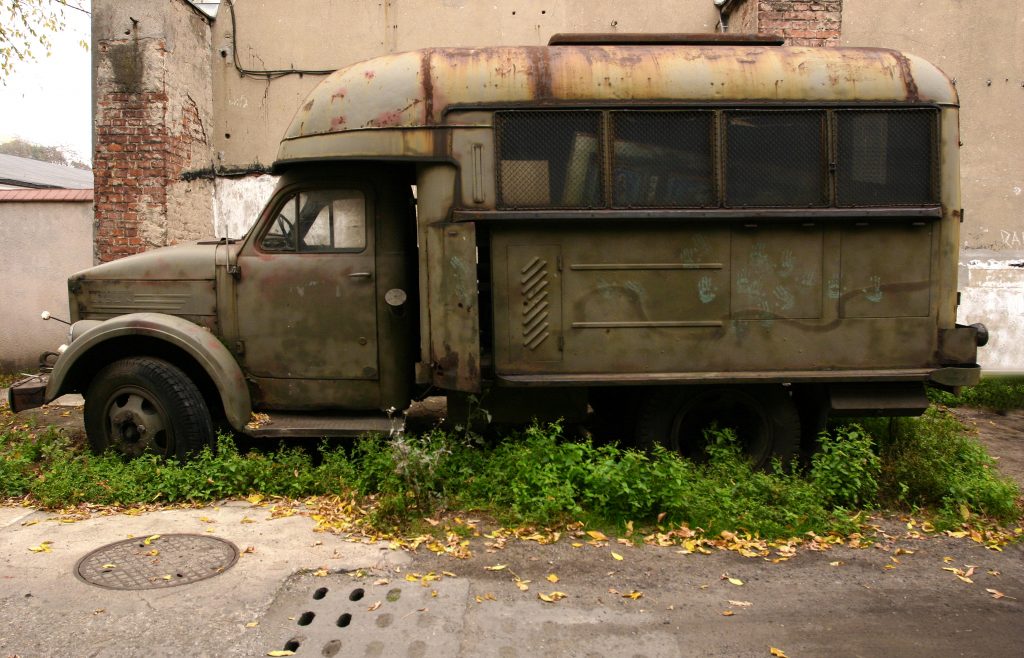 The generally rudimentary question of “what is the ‘amount in dispute’” was anything but simple when Louisiana courts sought to determine whether settlement amounts should be considered “in dispute” in calculating jurisdictional limits. The Monroe Circuit Court sought to determine the “amount in dispute” in relation the subject matter jurisdiction of a City Court with a jurisdictional limit of $30,000. The issue to be determined was whether following the dismissal of the settling defendants, the City Court had jurisdiction over plaintiff’s claim against her uninsured motorist insurer to the full extent of that court’s $30,000 jurisdictional limit. The implications of this case are that it will be easier for injured individuals to remain in City Court if they allege damages less than the jurisdictional limit, despite whether they have previously settled a portion of their claim for an amount exceeding the jurisdictional limit.
The generally rudimentary question of “what is the ‘amount in dispute’” was anything but simple when Louisiana courts sought to determine whether settlement amounts should be considered “in dispute” in calculating jurisdictional limits. The Monroe Circuit Court sought to determine the “amount in dispute” in relation the subject matter jurisdiction of a City Court with a jurisdictional limit of $30,000. The issue to be determined was whether following the dismissal of the settling defendants, the City Court had jurisdiction over plaintiff’s claim against her uninsured motorist insurer to the full extent of that court’s $30,000 jurisdictional limit. The implications of this case are that it will be easier for injured individuals to remain in City Court if they allege damages less than the jurisdictional limit, despite whether they have previously settled a portion of their claim for an amount exceeding the jurisdictional limit.
Holly D. Swayze (Holly) was involved in an automobile accident Brittany Miles struck her vehicle (Tortfeasor) on her passenger side door. Holly sustained injuries to her back and neck and sought recovery for her injuries in by filing a lawsuit in Monroe City Court, which had a jurisdictional limit of $30,000. She later amended her complaint for uninsured motorist (UM) benefits from her insurer, Shelter Mutual Insurance Company (Shelter Insurance), after it was revealed the tortfeasor carried an insurance policy in the amount of $25,000.
The procedural posture of this case was quite convoluted. Holly sought and was granted transfer to district court, alleging her claims presented an amount in dispute that exceeded the $30,000 jurisdictional limit. Transfer was granted. Soon thereafter, Holly executed a settlement with the tortfeasors insurer for $25,000, filed a motion to dismiss the tortfeasor and her insurer from the underlying lawsuit, and filed a motion to vacate the transfer order. The motion to dismiss and the motion to vacate were both granted.
 Louisiana Personal Injury Lawyer Blog
Louisiana Personal Injury Lawyer Blog


 Imagine growing up with a genetic disorder and having to struggle with the difficulties that these disorders bring to people and their loved ones. Nobody chooses to have a genetic disorder, and if severe enough the disorder can cause major setbacks in a person’s life. Even with protections in place like genetic non-discrimination laws, many people throughout the country are denied health care coverage by their insurance providers because they have genetic disorders. Insurance companies do not want to provide coverage to these people because they are more of a “risk.” This can be very frustrating for the individual, especially because health care is so expensive today.
Imagine growing up with a genetic disorder and having to struggle with the difficulties that these disorders bring to people and their loved ones. Nobody chooses to have a genetic disorder, and if severe enough the disorder can cause major setbacks in a person’s life. Even with protections in place like genetic non-discrimination laws, many people throughout the country are denied health care coverage by their insurance providers because they have genetic disorders. Insurance companies do not want to provide coverage to these people because they are more of a “risk.” This can be very frustrating for the individual, especially because health care is so expensive today.  Courts are not perfect, and sometimes they do not always render the correct decision. When a court makes an error in their judgment it can be very frustrating for all of the parties involved. Error can be very costly especially when a major issue, like finding coverage for a victim of an automobile accident under an umbrella insurance policy, needs to be determined. Both the plaintiff and defendant wants the court to look in their favor, but it is also the responsibility of the court to make an error free and accurate decision that is fair and just to both sides.
Courts are not perfect, and sometimes they do not always render the correct decision. When a court makes an error in their judgment it can be very frustrating for all of the parties involved. Error can be very costly especially when a major issue, like finding coverage for a victim of an automobile accident under an umbrella insurance policy, needs to be determined. Both the plaintiff and defendant wants the court to look in their favor, but it is also the responsibility of the court to make an error free and accurate decision that is fair and just to both sides.  Has your business sought to avoid litigation over its insured business activities by negotiating an out of court settlement? Louisiana business Meyers Warehouse, Inc. (“Meyers) pursued this route assuming its insurer, Canal Indemnity Company (“Canal”), would join Meyers in settlement negotiations. However, to its surprise, Canal refused to participate in Meyers’s defense. Unfortunately for Meyers, it misinterpreted key terms within its insurance policy specifying when Canal’s duty to defend it against claims and lawsuits arises.
Has your business sought to avoid litigation over its insured business activities by negotiating an out of court settlement? Louisiana business Meyers Warehouse, Inc. (“Meyers) pursued this route assuming its insurer, Canal Indemnity Company (“Canal”), would join Meyers in settlement negotiations. However, to its surprise, Canal refused to participate in Meyers’s defense. Unfortunately for Meyers, it misinterpreted key terms within its insurance policy specifying when Canal’s duty to defend it against claims and lawsuits arises. Accidents occur in daily life. Often, severe injuries result. However, prison accidents rarely are discussed. Prisoners who are victims of accidents while serving time are often provided with the same legal protections as an average person.
Accidents occur in daily life. Often, severe injuries result. However, prison accidents rarely are discussed. Prisoners who are victims of accidents while serving time are often provided with the same legal protections as an average person.  What happens if the trial court makes a mistake? The case can work its way through the court of appeals and even the state supreme court just to be sent back to trial court to begin again. This case involves a lawsuit filed in Louisiana court by a transportation company (“Star”) against another corporation (“Pilot”). Star is a national trucking company and Pilot owns a collection of truck stops that supply fuel to Star.
What happens if the trial court makes a mistake? The case can work its way through the court of appeals and even the state supreme court just to be sent back to trial court to begin again. This case involves a lawsuit filed in Louisiana court by a transportation company (“Star”) against another corporation (“Pilot”). Star is a national trucking company and Pilot owns a collection of truck stops that supply fuel to Star. Not just any court can hear any case. Depending on certain factors, your local court may not be the right choice to bring your matter. A New Orleans attorney found this out the hard way in a recently decided case.
Not just any court can hear any case. Depending on certain factors, your local court may not be the right choice to bring your matter. A New Orleans attorney found this out the hard way in a recently decided case.
 In Louisiana, the objection of prescription extinguishes a legal right of recovery when a party fails to exercise it over a given period of time. It is essentially a time limit on a claim, which can be raised in a couple of ways. Typically, it is raised by a peremptory exception, but it can also be raised by way of a prescriptive motion for summary judgment. One defense to the objection of prescription is the doctrine of contra non valentem. This doctrine is used to “soften the occasional harshness of prescriptive statutes.”
In Louisiana, the objection of prescription extinguishes a legal right of recovery when a party fails to exercise it over a given period of time. It is essentially a time limit on a claim, which can be raised in a couple of ways. Typically, it is raised by a peremptory exception, but it can also be raised by way of a prescriptive motion for summary judgment. One defense to the objection of prescription is the doctrine of contra non valentem. This doctrine is used to “soften the occasional harshness of prescriptive statutes.”  Insurance companies are coming under increasing pressure due to the recent proliferation of natural disasters in the United States. For an insurance company, navigating the boundary between legitimate and bad faith denial of claims can be a very risky business. However, courts are providing more and more guidance for insurers of companies who find themselves targeted by disaster. Recently, in
Insurance companies are coming under increasing pressure due to the recent proliferation of natural disasters in the United States. For an insurance company, navigating the boundary between legitimate and bad faith denial of claims can be a very risky business. However, courts are providing more and more guidance for insurers of companies who find themselves targeted by disaster. Recently, in